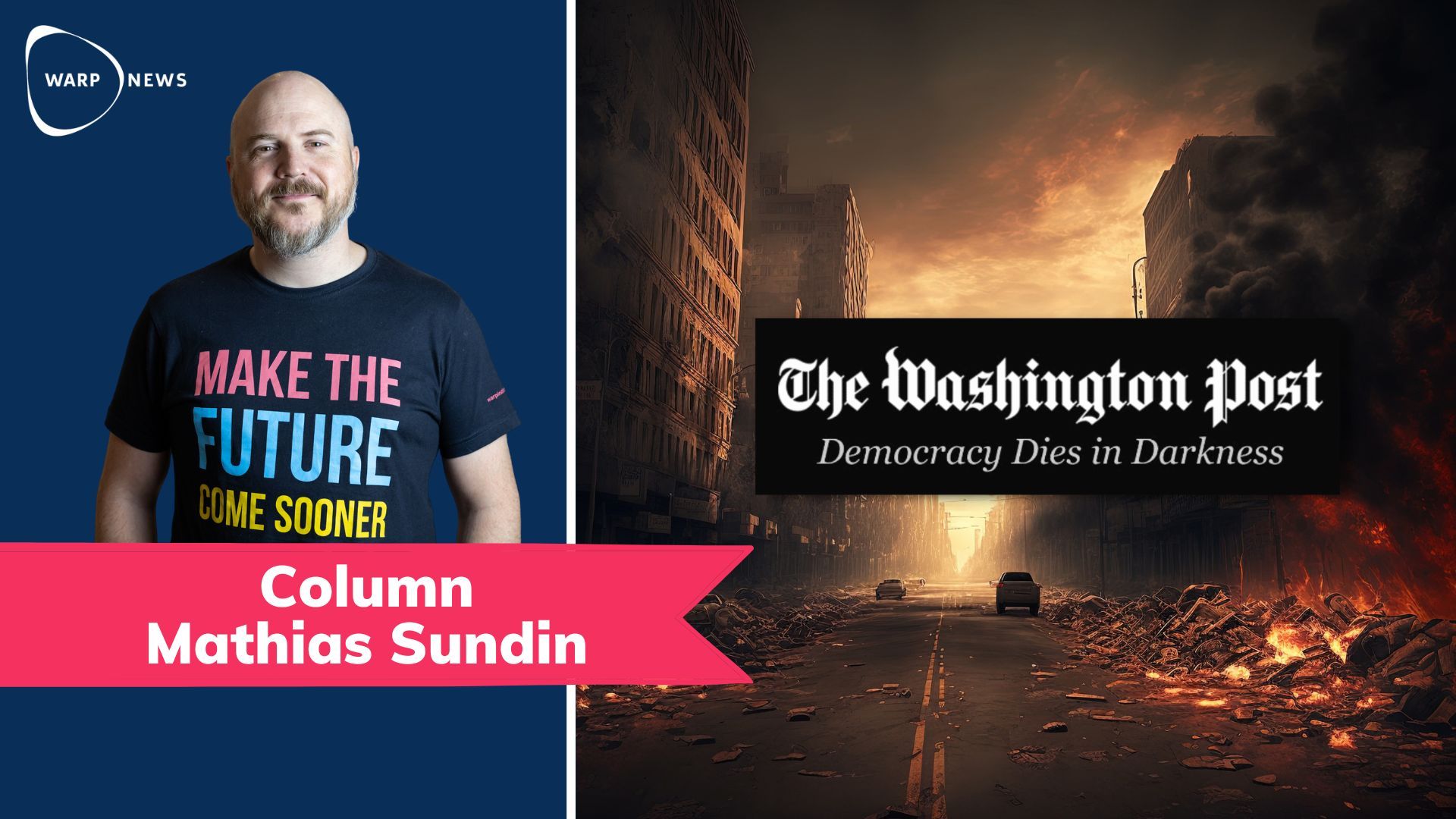
📰 Does the Washington Post really drive away the darkness?
The news media says they impact our worldview and the decisions we make. That is true. But the worldview they present is too negative. What does that say about the worldview we get and the decisions we make?
Share this story!
Why do we need free and independent journalism?
"It is needed to illuminate reality – and shine a light on what affects our world, our worldview, and our decisions."
This is from a new policy statement, a manifesto, from Sweden's largest daily newspaper, Dagens Nyheter (Daily News).
It is presented under the headline: "For an enlightened world."
Editor-in-chief Peter Wolodarski adds:
"That is the role of journalism in a democracy: to illuminate society - not least where power resides - so that citizens can better understand what is going on and make their own decisions."
This sounds like Washington Post's slogan: Democracy Dies in Darkness.
The explanation of this slogan was presented in a Super Bowl ad (only in America!) It ends with these three sentences:
"Because knowing empowers us.
Knowing helps us decide.
Knowing keeps us free."
I've bolded the text in the policy statements. Because I agree - but this is also where Dagens Nyheter and the Washington Post fail miserably.
The news media influence our worldview and influence the decisions we make. But what is the worldview they give us? It is not balanced. It is far too negative and pessimistic.
Watergate is what the media does best
What Dagens Nyheter, the Washington Post (I subscribe to both) and many other news media do well is scrutiny of power.
Especially political power. Washington Post's own investigation of President Nixon – the Watergate scandal – is the crown jewel. But also other power, like Wall Street Journal's bloody revelations about Elizabeth Holmes and Theranos.
We also see daily how journalists risk – and lose – their lives when reporting from war zones and dictatorships.
This part of free, independent journalism really enlightens the world, is very important and praiseworthy.
The negative bias cannot be excused
But that does not mean the news media can get a free pass on their gross bias towards negative news.
The world is not all misery. The world is not even more negative than positive. This is shown by Steven Pinker in Enlightenment Now, Hans Rosling in Factfulness and Johan Norberg in Progress.
Or visit Our World in Data's "A history of global living conditions in 5 charts". Here is the best of the five.
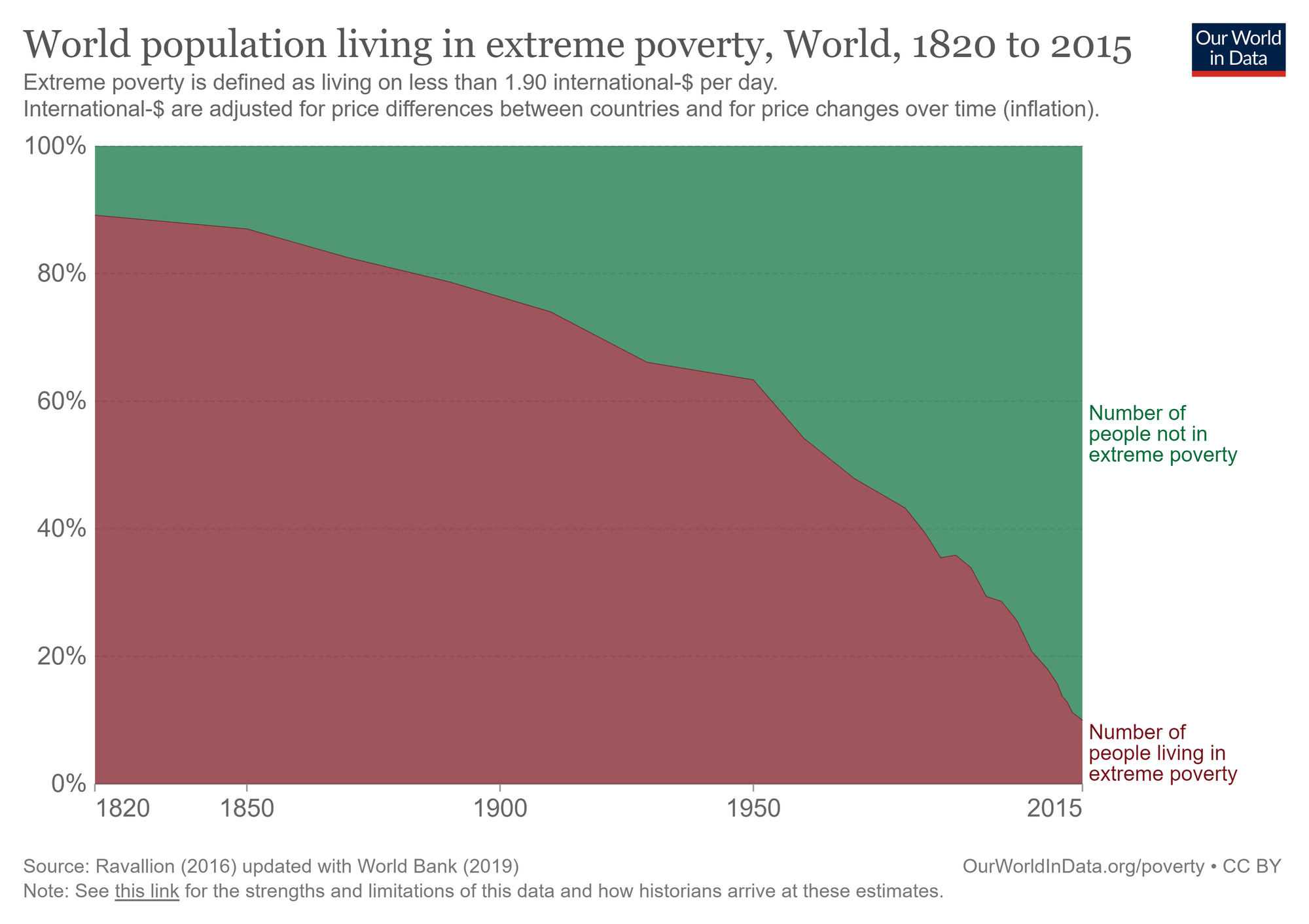
Like, the only negative graph in Pinker's book is actually the tone of the news media. Which is increasingly negative over time.
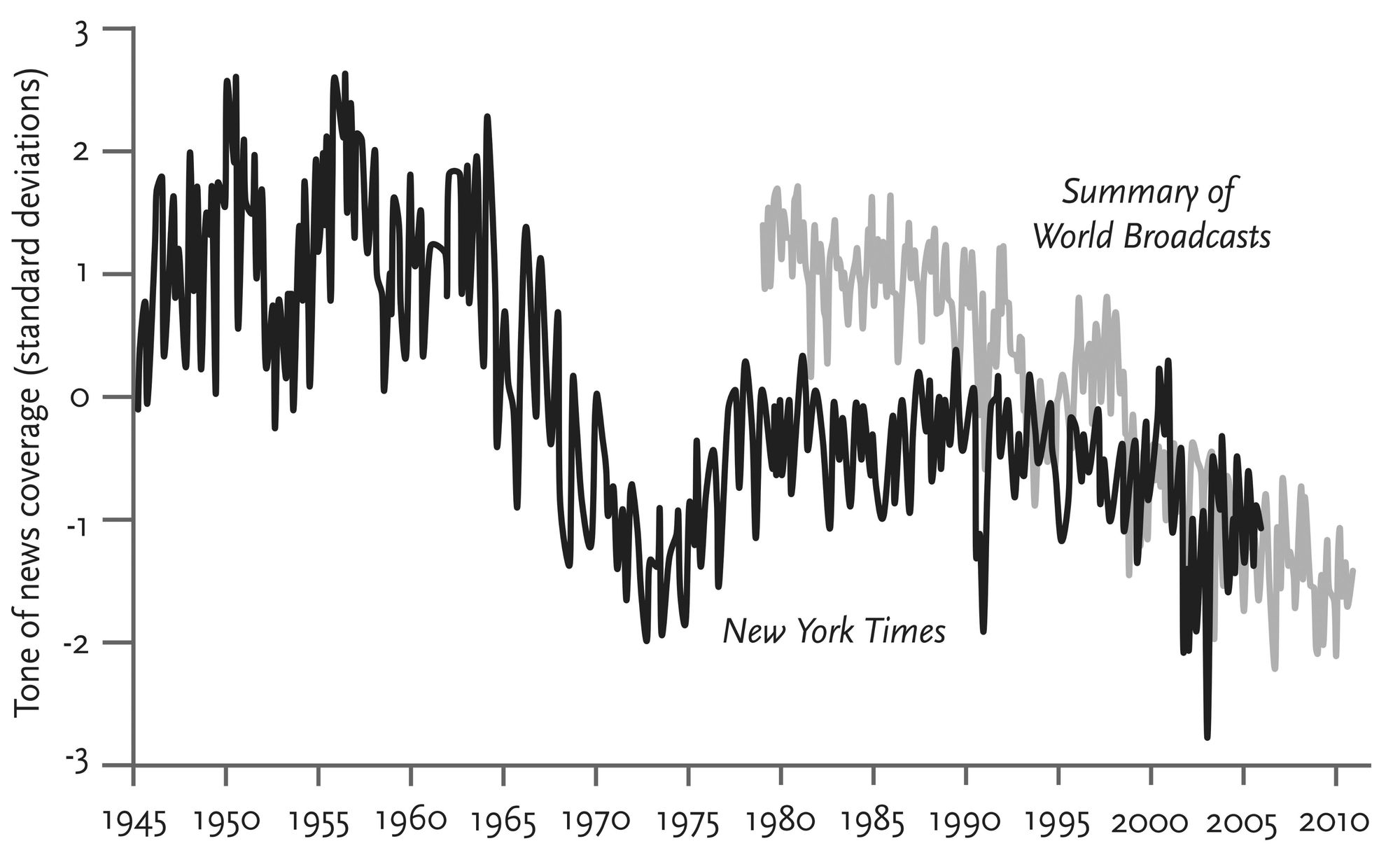
Recently, new research emerged in which the tone of news headlines in the American media has been measured. Angry headlines have increased dramatically over the past 20 years. So did headlines with fear, sadness and disgust. Neutral headlines decreased, as have happy headlines.
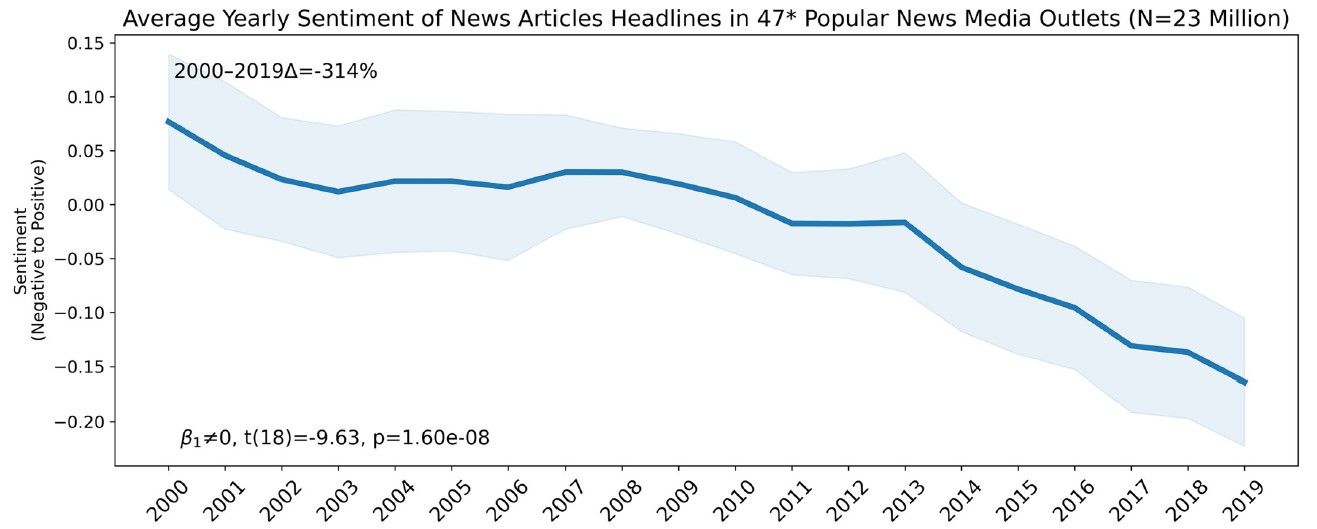
Our World in Data asked the question: Does the news reflect what we die from?
The bar on the left is what Americans die from. Heart diseases 30.2 percent and cancer 29.5 percent, are by far the most common causes of death.
The two bars on the right are what the New York Times and The Guardian write about. There, terrorism gets over a third of the space and murders almost a quarter.
But in reality, terrorism makes up 0.01 percent of deaths and murders 0.9 percent.
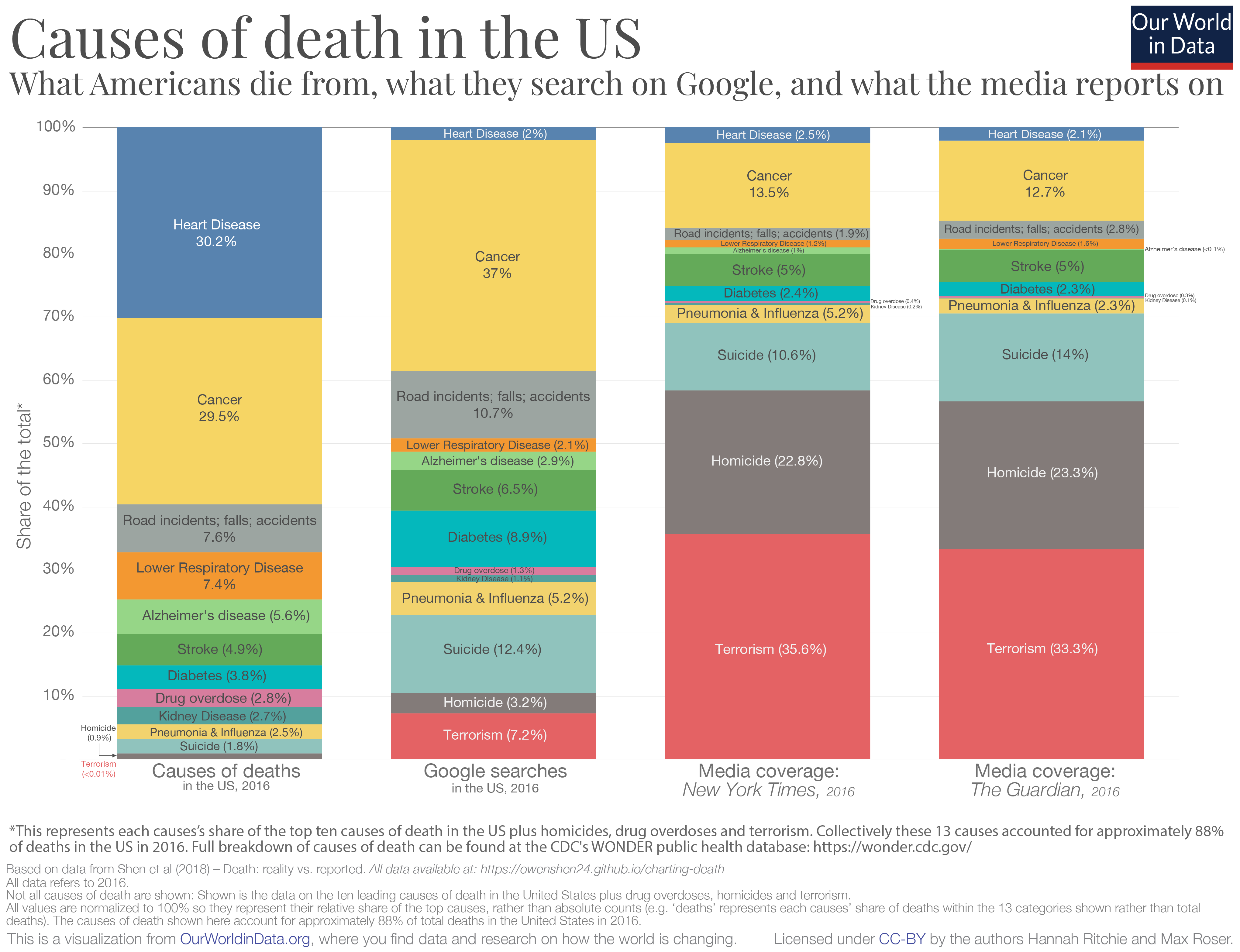
In Warp News' own survey on Swedes' view of the news media, 60 percent said that they think the news media has predominantly negative news.
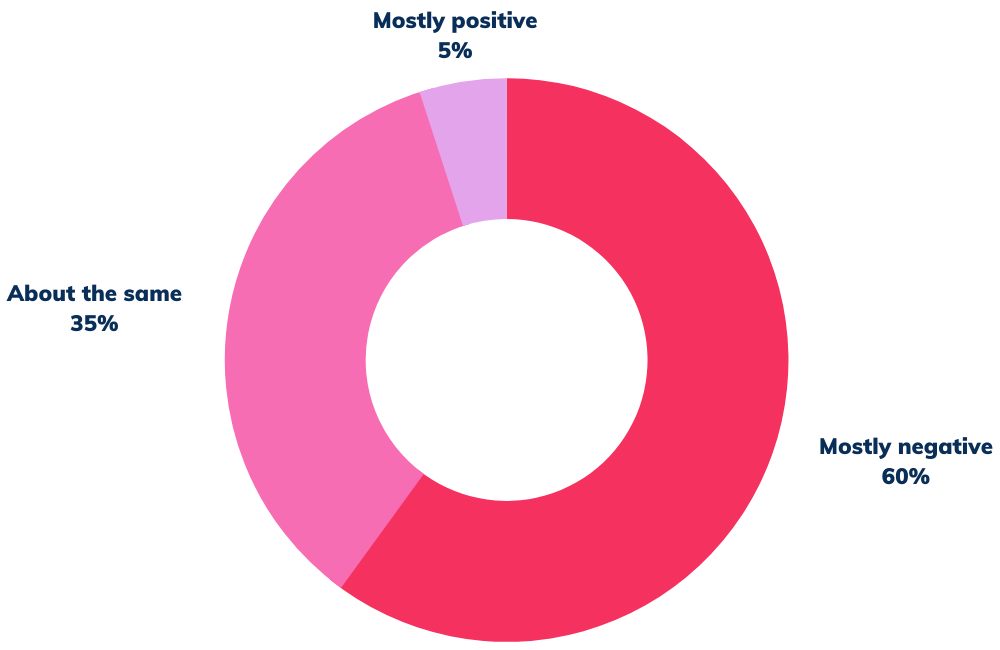
Of the respondents, a total of 42 percent answered that they feel more pessimistic when they view Swedish news media.
You cannot use the media to understand the world
On Danish television, professor Hans Rosling said: "You cannot use the media to understand the world."
The host replies that the media reports on the world as it is. The world is filled with war, conflict, chaos, unrest and a whole host of other problems.
Hans Rosling puts his one shoe on the table and says: "If you choose to show only a part of me, only show an ugly shoe ... you only show a small part and call it 'the world'."
What worldview do we get?
So when the Washington Post and Dagens Nyheter say their journalism affects the world and influences our decisions, they are absolutely right.
But the image they provide us is biased and too negative.
What does that say about the worldview we get and the decisions we make?
Mathias Sundin
Editor-in-Chief
By becoming a premium supporter, you help in the creation and sharing of fact-based optimistic news all over the world.


